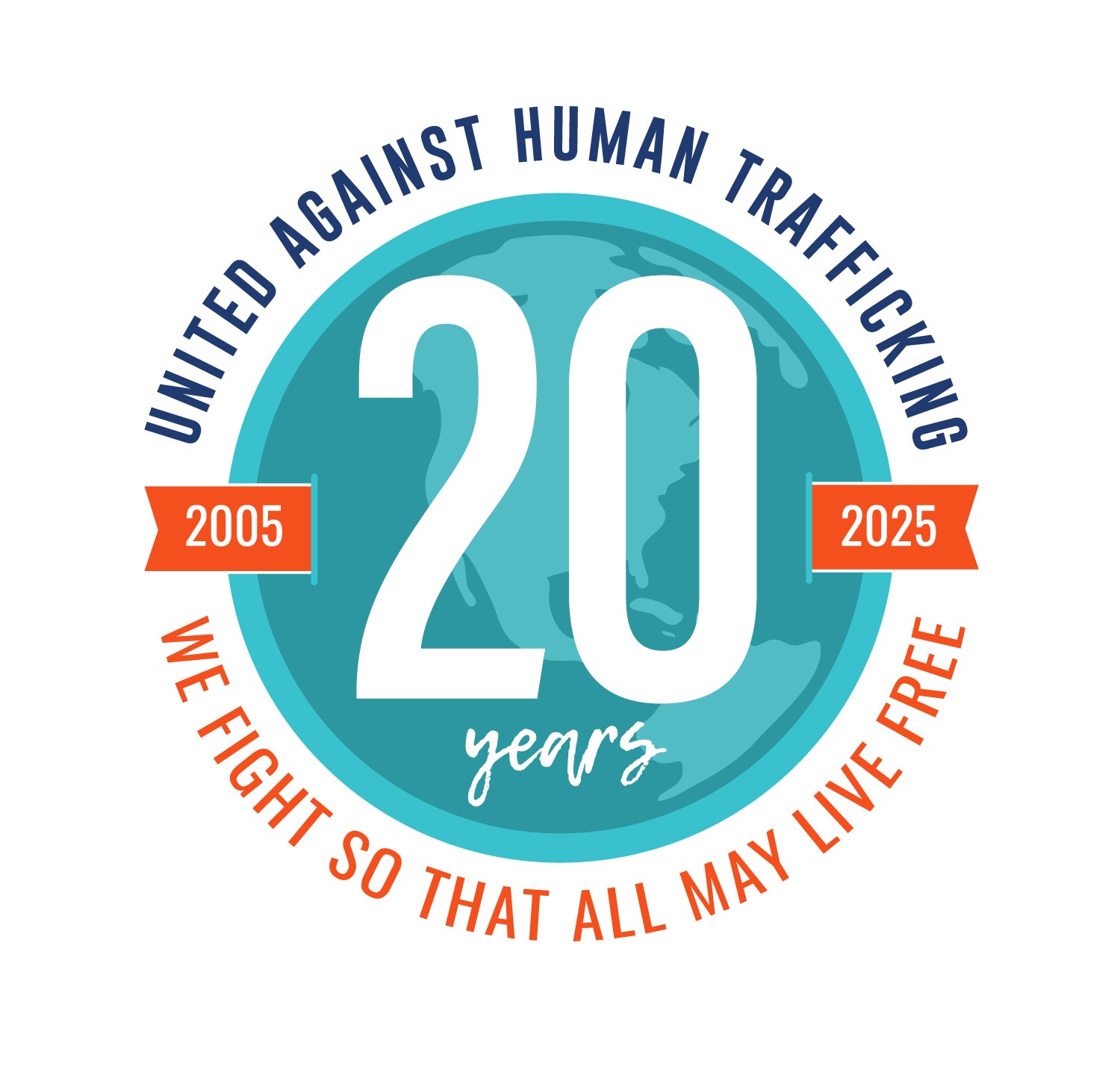
Mrs. Baker cheers as Riley marches across the field with plumes of feathers ascending from her head. Despite the sweltering August heat, Mrs. Baker proudly stands and claps for her child at the end of the halftime show. A bass drum weighs heavy on Riley’s shoulders as a thought weighs heavy in Mrs. Baker’s mind—her kid seems to be doing well at this new school, but she keeps seeing the words “human trafficking” pop up on Facebook and in the news.
She wonders, “should I talk to my child about human trafficking?”
That’s the question we hear from parents all the time.
It’s not an easy conversation. You may feel like you’re slowly taking away your child’s innocence. It’s difficult to tell your kids that traffickers look for sadness, isolation, and self-doubt in their victims. As you approach the conversation with your children, remember that you’re not taking your child’s innocence– you’re helping your child stay safe and free.
We’ve seen parents address human trafficking with different methods: the misinformed approach, the informative approach, and the empowering approach.
- The Misinformed Approach
A misinformed parent has the best intentions but doesn’t understand the “players” involved in human trafficking. They warn their children about stranger danger, not realizing that many traffickers have a connection with their victims- familial, romantic, platonic, professional.
In turn, the child won’t learn how to differentiate healthy versus unhealthy relationships. They won’t understand how to protect themselves. The child may become fearful from this warning.
If you’re this parent, you can rest easy. You’re in the right place. Keep reading and explore our website to learn more about human trafficking. Reach out to us to schedule a parent training in your area. - The Informing Approach
A parent taking the informing approach is knowledgeable about human trafficking. They understand the “players” involved in trafficking and they understand traffickers’ recruitment tactics. They have the right intention and the right information, but their approach is a one-time, one-way lecture. They state facts and statistics; they lay expectations and rules.
If you’re an informer, consider a few things. How can you encourage your child to engage in the conversation with you? Do they understand the boundaries that you have laid out for them? Have you given them an opportunity to ask questions? - The Empowering Approach
The empowering approach is a holistic method to preventing your family from enduring the horrors of human trafficking. A parent taking this approach understands that this conversation doesn’t occur once. It’s an ongoing, trust-building, relationship-centered process.
Like the informer, the empowerer deeply understands human trafficking. They have attended a parent workshop, read trusted blog sources, and have the hotline saved in their phone. However, the empowering approach goes beyond informing. It builds a foundation of trust and openness in your family. This foundation gives your child the space to build self-confidence and community. Doing so will allow your child to analyze situations and make safe decisions.
How to Take the Empowering Approach
- Get Informed.
Attend a parent seminar and save the human trafficking hotline phone number. You’ll have answers for your children’s questions and you’ll understand the warning signs of human trafficking and be able to respond early. - Talk with your child every day.
Start simple by asking open-ended questions about your child’s daily experiences: “Tell me about your day!” “Tell me about a time when you answered a teacher’s question this week! How did it make you feel?”
Transition into deeper discussions about self-worth: “How are you feeling about yourself?” “Have you ever been made fun of?” Help build their personal confidence. Remember, junior high and high school is a TOUGH time. Your child is trying to fit in with their peers. Assure them that they can’t say anything to make you love them any less. - Learn about your child’s relationships.
Learn about who your child’s friends are and what they like. Who do they have a crush on? By expressing interest in your child’s friends and activities, you’re showing them child that you care. You’re showing them that you’re always there to listen if they need to talk about something- especially when something happens between friends. - Help your child connect with safe people.
Don’t just tell your child what not to do. Help them find what is right and safe. Make friends with other families that you trust and spend time all together. Doing so will help your child learn what a healthy relationship looks like. - Support your child to take action against human trafficking.
Helping your child take action against human trafficking will help them learn more about the causes and repercussions. Kids and teens can attend some of our back-to-school awareness workshops. They can also join The Resilience Project, which enables teens 14-18 to lead awareness campaigns in their schools and communities.
To schedule an awareness workshop at your child’s school, fill out a speaker request form.
If your child is interested in becoming a Resilience Advocate, they can apply.
Don’t Give Up
Raising a kid is hard. It’s ever-changing and constantly variable. There may be a day where your child won’t listen to you or won’t open up to you. That’s okay. Be patient and understanding, and never give up trying to have the conversation.
You are a parent, you are strong, and you can do this. For you, for your family, for freedom.

